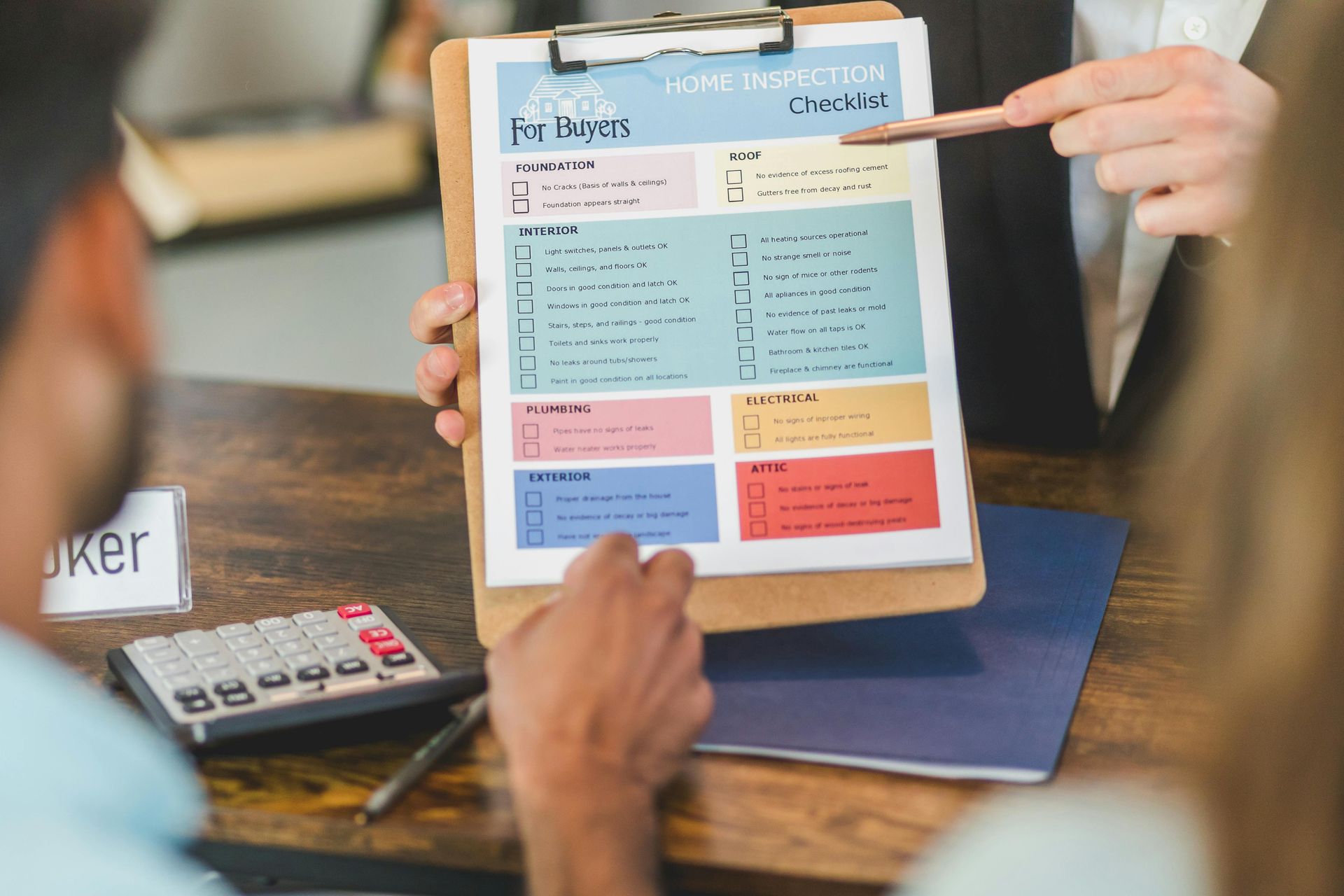The Ultimate New Home Buyer’s Interstate Relocation Toolkit: Your Complete Guide to Moving States Like a Pro
Moving to a new state while purchasing your first home can feel like navigating uncharted territory. Between unfamiliar real estate markets, different state regulations, tax implications, and the logistics of long-distance house hunting, the process can quickly become overwhelming.

This comprehensive toolkit will transform you from an anxious relocator into a confident, well-prepared home buyer ready to make smart decisions in your new state.
Phase 1: Financial Foundation and Pre-Planning (8-12 Weeks Before Moving)
Secure Your Mortgage Pre-Approval Early
Your financial foundation is everything when buying across state lines. Start this process 8-12 weeks before your planned move date, as interstate transactions often take longer than local purchases.
Essential Steps:
• Get pre-approved with a lender experienced in interstate transactions
• Understand how your current state employment affects loan approval
• Document all income sources, especially if you’re changing jobs
• Obtain multiple pre-approval letters for different price ranges
Critical Questions to Ask Lenders:
• How do you handle employment verification for interstate moves?
• What documentation do you need for job offers or transfers?
• Are there specific loan programs for relocating buyers?
• How do state-specific regulations affect my loan terms?
Master the Tax Landscape
Tax implications vary dramatically between states and can significantly impact your housing budget and long-term financial health.
Research These Tax Factors:
• State income tax rates and structures
• Property tax rates and assessment methods
• Sales tax on home purchases and improvements
• Homestead exemptions and first-time buyer programs
• Estate and inheritance tax implications
Money-Saving Strategy: Some states offer significant tax advantages. For example, moving from California to Texas could save you thousands annually in state income taxes, allowing for a higher housing budget.
Build Your Professional Network
Establishing relationships with local professionals before you arrive gives you a significant advantage.
Essential Team Members:
• Real estate agent specializing in relocation
• Mortgage loan officer with local market expertise
• Real estate attorney (required in some states)
• Home inspector familiar with regional issues
• Insurance agent understanding local risks
Networking Tips:
• Ask your current professionals for referrals
• Join local Facebook groups and online communities
• Contact your new employer’s HR department for recommendations
• Research professionals through local real estate boards
Phase 2: Market Research and Location Analysis (6-8 Weeks Before)
Decode the Local Real Estate Market
Each state and region has unique market characteristics that affect timing, pricing, and negotiation strategies.
Market Research Essentials:
• Average days on market for your price range
• Seasonal buying patterns and optimal timing
• Common contingencies and contract terms
• Typical seller concessions and buyer expectations
• New construction vs. existing home market dynamics
Insider Tip: Markets vary even within states. Austin’s real estate market operates differently from Houston’s, despite both being in Texas.
Neighborhood Intelligence Gathering
Remote neighborhood research requires strategy and multiple information sources.
Research Methods:
• Virtual neighborhood tours using Google Street View
• School district ratings and boundary maps
• Crime statistics and safety reports
• Public transportation accessibility
• Future development plans and zoning changes
• Walk/bike scores for daily amenities
Cost-Saving Research: Identify up-and-coming neighborhoods before they peak. Areas with planned infrastructure improvements or business developments often appreciate faster.
Climate and Environmental Considerations
Different states present unique environmental challenges affecting both home selection and long-term costs.
Climate Factors to Research:
• Seasonal weather patterns and utility costs
• Natural disaster risks and insurance requirements
• Regional construction standards and building codes
• HVAC system requirements and efficiency needs
• Landscaping and water usage restrictions
Phase 3: The House Hunting Strategy (4-6 Weeks Before)
Optimize Virtual House Hunting
Most of your initial house hunting will happen remotely, making efficiency crucial.
Virtual Hunting Best Practices:
• Schedule live virtual tours during optimal lighting hours
• Request specific videos of concerns (foundation, roof, mechanicals)
• Use FaceTime or video calls to see properties in real-time
• Create detailed comparison spreadsheets
• Save neighborhood drive-by videos for context
Technology Tools:
• Realtor.com and Zillow for basic searches
• MLS access through your agent for comprehensive data
• Google Earth for property layout and neighborhood context
• Local municipal websites for permit and development info
Plan Strategic House Hunting Trips
When you do visit in person, maximize every moment and dollar spent.
Trip Planning Strategy:
• Schedule 2-3 day intensive house hunting weekends
• Book accommodations in target neighborhoods
• Plan for 6-8 house viewings per day maximum
• Include time for neighborhood exploration
• Schedule meetings with lenders, inspectors, and other professionals
Money-Saving Tip: Some relocation packages include house hunting trip expenses. Check with your employer about available benefits.
Make Competitive Offers from a Distance
Remote offers require extra preparation and stronger terms to compete with local buyers.
Strengthening Your Offer:
• Include larger earnest money deposits
• Offer shorter inspection periods
• Provide proof of funds and pre-approval upfront
• Write personal letters to sellers
• Consider escalation clauses in competitive markets
Phase 4: Due Diligence and Contract
Navigation (2-4 Weeks Before Closing)
Navigate State-Specific Contract Terms
Real estate contracts vary significantly between states, affecting your rights and obligations.
State Differences to Understand:
• Disclosure requirements and seller obligations
• Standard contingency periods and terms
• Required attorney involvement
• Closing cost allocation customs
• Title insurance and escrow practices
Coordinate Remote Inspections
Managing inspections from a distance requires clear communication and detailed documentation.
Inspection Management:
• Hire inspectors with strong communication skills
• Request detailed photo documentation
• Schedule video walk-throughs of findings
• Understand regional inspection standards
• Plan for specialized inspections (termite, radon, etc.)
Prepare for Closing Logistics
Interstate closings involve additional complexity and timing considerations.
Closing Preparation:
• Understand your state’s closing procedures
• Arrange for remote signing if necessary
• Coordinate timing with your move
• Prepare certified funds and required documentation
• Plan for final walk-through logistics
Phase 5: Moving and Settlement Preparation
Coordinate Your Physical Move
Timing your move with your home purchase requires careful orchestration.
Moving Strategy:
• Book moving companies 6-8 weeks in advance
• Plan for temporary housing if needed
• Coordinate utility transfers and new connections
• Update your address with all institutions
• Research new state vehicle registration and licensing requirements
Establish Local Services
Hit the ground running in your new state with essential services ready.
Service Setup Priority List:
1. Utilities and internet
2. Banking and financial services
3. Healthcare providers and prescriptions
4. Insurance updates (auto, health, renters/homeowners)
5. Voter registration and state ID
6. School enrollment if applicable
Cost-Saving Strategies Throughout the Process
Leverage Relocation Benefits
Many employers offer relocation assistance that extends beyond basic moving expenses.
Common Relocation Benefits:
• House hunting trip reimbursement
• Temporary housing allowances
• Closing cost assistance
• Real estate agent fee coverage
• Tax gross-up on relocation expenses
Timing Your Purchase
Strategic timing can save thousands on your home purchase.
Timing Strategies:
• Buy during off-season in your new market
• Take advantage of year-end seller motivation
• Consider new construction incentives
• Monitor interest rate trends for optimal lock timing
Tax Deduction Opportunities
Interstate moves often qualify for various tax deductions.
Potential Deductions:
• Moving expenses (if job-related)
• Mortgage interest and property taxes
• Points paid on your mortgage
• State and local tax differences
Red Flags and Common Mistakes to Avoid
Financial Pitfalls
Avoid These Costly Mistakes:
• Underestimating total relocation costs
• Failing to account for state tax differences
• Not researching local insurance requirements
• Ignoring HOA fees and special assessments
• Overextending budget without emergency reserves
Market Misunderstanding
Common Market Mistakes:
• Applying home state market rules to new markets
• Misunderstanding local negotiation customs
• Ignoring seasonal market patterns
• Underestimating local competition levels
• Making decisions based on outdated market information
Legal and Regulatory Oversights
Regulatory Mistakes to Avoid:
• Not understanding state disclosure requirements
• Ignoring local environmental regulations
• Missing required inspections or certifications
• Misunderstanding closing procedures
• Failing to research zoning restrictions
Your Action Plan: 90-Day Countdown
90 Days Before: Foundation Phase
• Secure mortgage pre-approval
• Research target markets and neighborhoods
• Build professional network
• Begin employer relocation benefit discussions
60 Days Before: Intensive Research Phase
• Narrow neighborhood choices
• Schedule virtual house tours
• Plan house hunting trips
• Research schools and local amenities
30 Days Before: Active Hunting Phase
• Make house hunting trips
• Submit offers on target properties
• Coordinate inspections and due diligence
• Finalize moving logistics
Closing Week: Final Coordination
• Complete final walk-through
• Attend closing (virtually or in person)
• Coordinate move timing
• Begin local service establishment
Your Next Steps
Successfully buying a home in a new state requires preparation, patience, and the right professional team. This toolkit provides your roadmap, but every relocation situation is unique. Consider working with real estate professionals who specialize in interstate relocations and understand the specific challenges you’ll face.
The key to a successful interstate home purchase lies in early preparation, thorough research, and building strong professional relationships in your new state. With proper planning and the right guidance, you’ll not only find your dream home but also establish yourself confidently in your new community.
Remember: this major life change represents new opportunities and adventures. Approach it with confidence, armed with knowledge and surrounded by experienced professionals who understand the interstate home buying process.
This comprehensive guide serves as your starting point for interstate home buying success. Every situation is unique, so consider consulting with local real estate and mortgage professionals who can provide personalized guidance for your specific relocation needs.
Start Your Mortgage Application with Treasure Coast Home Loans
Your Local Mortgage Broker
Mortgage Broker Port St. Lucie, Florida
Learn More About the Mortgage Process.
Check Out Our Google Verified Reviews










